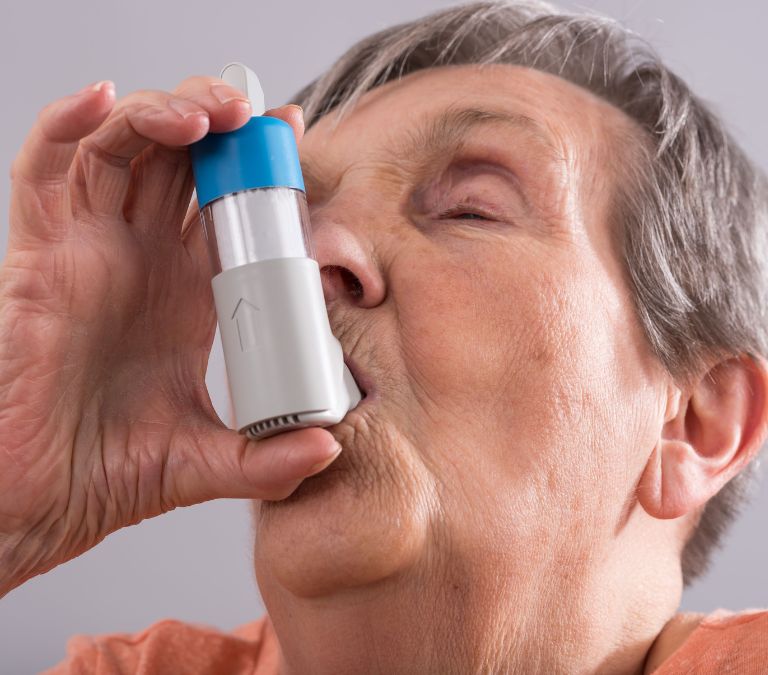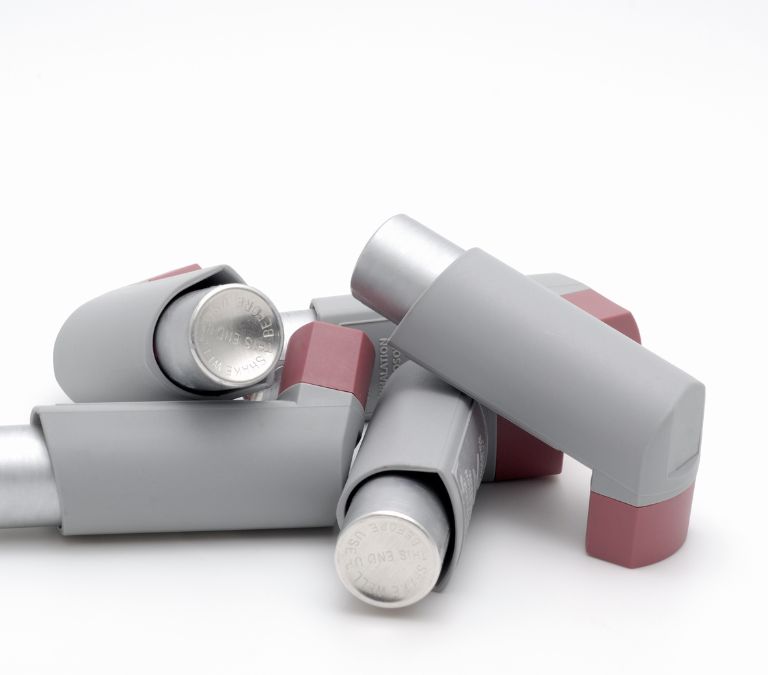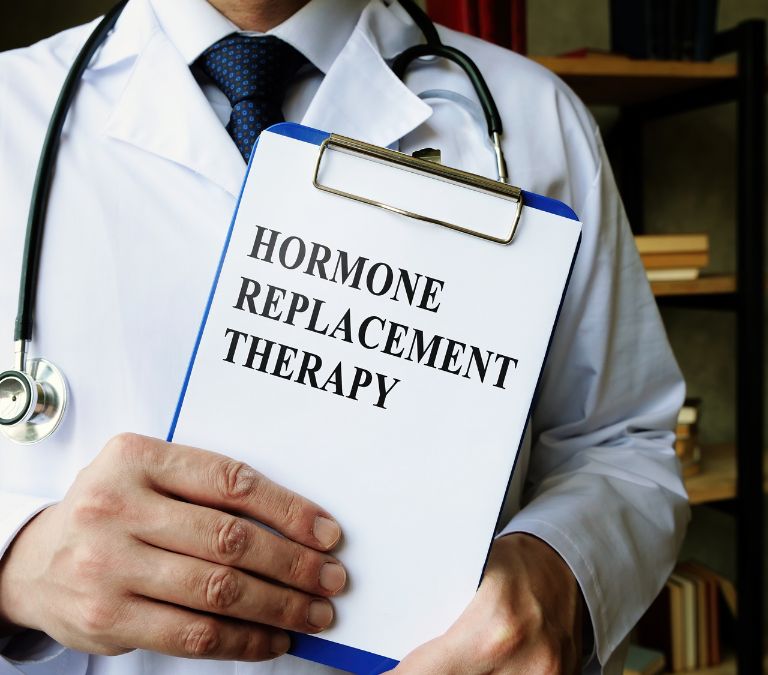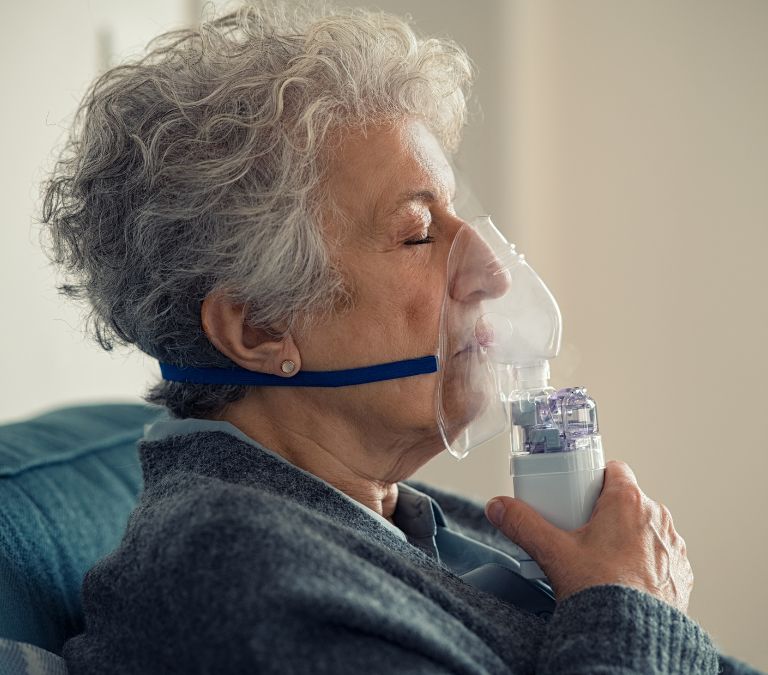As a woman, your reproductive years refer to the phase of life where you can be pregnant if you have sex. This phase begins when you start menstruating (which marks the beginning of ovulation) to the period of menopause.
Once you start menopause, you might experience bodily changes in lifestyle and health. These changes begin from the period just before menopause – perimenopause, usually from about age 45 or so. Though, it varies from woman to woman.
You may begin to experience some health issues too related to menopausal symptoms. These symptoms mainly include hot flashes, irregular periods, poor sleep patterns, etc.
Though it’s not so much a widespread menopause symptom, another issue you might find yourself having is asthma. Yes. Menopause can cause or worsen asthma attacks.
Don’t worry much because it may not be as bad as it sounds.
Nevertheless, read on whether you’re a woman in menopause or about to go through menopause. You’d need to understand how menopause relates to having asthma and what you can do about that.
Table of Contents
- About Asthma
- How does menopause affect asthma
- Preventive measures to take to lower asthma risks
- Other conditions that may worsen asthma symptoms
- Hormone Replacement Therapy (HRT) in Treating Asthma
About asthma

Asthma is a kind of airway disease that causes a tightening feeling in your lungs. It is medically called a chronic respiratory disease because it stays with an affected individual over a long time.
Asthma occurs with primary symptoms like inflammation of the respiratory airways and lung mucus production. Then, these partially block the flow of normal breathing.
So, during an asthma attack, one may experience shortness of breath, wheezing sounds when breathing, and triggers to cough hard.
Asthma is a common disease among many people, especially among women. It also affects children even slightly more frequently. Being chronic, it can stick with a woman until old age.
Asthma is also hereditary, and your risk of having the disease is higher if someone in your family has had asthma.
It is not a very severe medical condition, but if it’s not managed correctly, it can become life-threatening.
An asthma attack takes course because of a reaction to an allergy most of the time. This allergen may be pollen grains, dust, or other allergens specific to some people. Yet also, asthma could be triggered by other non-allergic factors like strenuous exercise, fatigue, stress, or an illness.
How Does Menopause Affect Asthma?
Menopause is associated with varying hormone levels. Your body’s main reproductive hormones are progesterone and estrogen. These female hormones are responsible for many functions in your body.
When these hormones, especially estrogen, are at low levels, you may begin to experience some body changes. Unpleasant symptoms like headaches, mood swings, or even restlessness may occur.
Your hormone levels may become unstable during pregnancy, menstruation, or menopause. The estrogen in the body begins to fluctuate, alternating between high and low levels.
Many women who had previously experienced asthma symptoms before menopause report that their asthma symptoms worsened just before and during menopause. Also, it is not uncommon if you have never experienced asthmatic symptoms before but develop asthma symptoms during menopause.
So, there is some relation between hormone levels in menopause and having asthma. Unfortunately, though, studies have not successfully determined why this is so. Low estrogen levels may cause inflammatory lung changes that trigger asthma symptoms.
The case of asthma during menopause as a woman differs significantly from person to person. Some who have had asthma previously may see it worsen during menopause, and others who have never experienced it may have their first episodes during menopause.
Even in the severity of symptoms, there are differences. Your symptoms may be very mild during menopause, while it may not be so for another person.
The female hormones are mostly your triggers that can cause an asthma attack in menopause. However, they could also trigger other conditions like a cold or fever. These conditions can, in turn, trigger asthma.
Medical efforts to set up the balance in hormone levels prove helpful in asthma cases in menopause. It involves replacing estrogen levels to prevent the symptoms following hormone fluctuations.
Preventive Measures to Lower the Risks of Asthma during Menopause

Asthma is a chronic disease and isn’t fully curable. So, you can only control it by making the attacks less frequent and the symptoms more negligible. You can make many efforts to address the disorder, so it doesn’t worsen to become a more severe issue.
- Discover your triggers apart from known triggers
Triggers that can cause an asthma attack may be different for you. So, it will help if you find personal triggers. These may be allergic reactions to certain substances or non-allergic factors from your surroundings.
The well-known and general triggers include allergens, stress, illness, etc. Watch out for those. But also, find out if there are any substances peculiar to you that appear to trigger asthma.
You can make a symptom diary to keep track of any newly discovered allergen or trigger.
- Avoid the already known triggers and allergens.
Also, make sure to avoid the triggers you are already aware of. It’s easy to ignore the already known triggers when searching for hidden ones, so be wary of that.
Stay away from stressful exercise during menopause. Be extra careful that any ingredient you are allergic to is not included in the diet.
Avoid dusty environments because it is a well-known asthma trigger. If you have to enter a garden full of pollen or any air-polluted place, you could use a nose mask or handkerchief to cover your nose.
- Take asthma preventive medicine as prescribed by a doctor
Your doctor would probably prescribe some drugs or medicine to you after you report asthma attacks to them. Make sure to take them – and according to prescriptions.
A doctor’s prescriptions are often more effective in preventing or reducing an asthma attack than any other home remedy you may know of.
- Take reviews consistently to know how to tackle asthma attacks better
You can also make efforts to take reviews about asthma attacks you have experienced. You can choose to do this yearly, monthly, or even weekly if you can or if they are that often. The essential factor is to be consistent in doing it.
Taking asthma attack reviews will help you watch your progress in treating the disease and help you predict how often the attacks may come. It will also help you determine how helpful your treatment is to the condition.
- Always keep your inhaler handy.
Once you experience asthma symptoms, the inhaler becomes a required tool to always have with you. It is very necessary because attacks may come when you least expect them.
If your inhaler is handy during an attack, you can use it easily and feel relieved within a few minutes. However, you might be very uncomfortable if an inhaler is not around during an attack.
Other Conditions that May Worsen Asthma Symptoms
Other factors may worsen your asthma symptoms. Generally, we can say that almost any medical issue or stage of life as a woman that causes your body estrogen to increase or drop significantly can cause asthma.
The hormone imbalance can worsen already existing symptoms. It can even cause you to develop asthma that wasn’t there, to begin with.
Pregnancy
Many women report that during pregnancy, their asthma symptoms become worse. The hormones rise to very high levels in pregnancy to help the fetus develop well. You may find this hormone level change upsetting your body’s hormonal imbalance. And that would likely worsen asthma. Or cause the disease to manifest for the first time.
The effect differs from woman to woman, though. You may even find out that your asthma symptoms are relieved to some extent during a pregnancy instead of getting worse. The increase of estrogen to make up for previous drops can be why.
Menstruation
About one-third of the women population complain of worsened asthma symptoms during their periods. You can relate this to the fact that your progesterone and estrogen in the body fall to a low level just before and during your period. So, the chances of having asthma attacks become greater during menstrual periods.
In most cases, your doctor would prescribe some medication for your asthma to make symptoms go away or prevent an attack altogether. However, some medicine you might be taking to relieve menstrual pains might be worsening asthma. Seek a diagnosis with the doctor if you feel this is a likely reason for your increased symptoms.
Irregular Periods
While menstruation can trigger asthma episodes, the risks are even higher, and the case is probably more severe with women with irregular menstrual cycles than those with regular periods.
Studies show that you are 58 percent more likely to have asthma attacks than women with regular periods if you don’t have a clear normal menstrual cycle.
Hormone Replacement Therapy

Hormone replacement therapy has shown to be effective in reducing asthma symptoms in women. It works by replacing hormone levels that fall low during menstruation, pregnancy, and mostly menopause. It works by adding more synthetic progesterone and estrogen.
Unfortunately, though, it does not apply to all women. The relationship between female hormones and asthma is yet to be fully understood. So, research on the therapy found that hormone replacement increases asthma risks and severity of symptoms in some women.
Hormone Replacement Therapy (HRT) in Treating Asthma
Hormone replacement therapy is used during menopause to deal with menopausal symptoms. With hormone replacement therapy, you can reduce or completely stop some health issues associated with menopause. That includes hot flashes, vaginal irritations, and other health risks.
The therapy works by trying to restore the balance and levels of your female hormones progesterone and estrogen. During menopause, these hormones fall to shallow levels and are either directly the reason or contribute to the health conditions you might face as an aging woman.
However, recent findings that hormone replacement therapy produces adverse side effects after use by some individuals make us question whether it’s advisable to use hormone replacement therapy to relieve symptoms.
Whereas some women give relieved reports of not having to experience menopausal symptoms after using the replacement therapy, others report worsened cases.
The effectiveness or side effects of the therapy differ among women, so you must confirm if this therapy is right for you.
Ideally, people who should use hormone replacement therapy should be up to perimenopause age and already experiencing symptoms like vaginal dryness or hot flashes.
If you’re pregnant, it’s not a very good idea to use hormone replacement therapy to relieve yourself of any pregnancy symptoms you might be feeling. Also, hormone replacement therapy is not ideal for people with medical issues such as hypertension, stroke, breast cancer, blood clots, gallbladder, or heart disease.
Hormone replacement therapy can be used in menopause to reduce or prevent asthma attacks by replacing the progesterone and estrogen decrease associated with aging. But you might want to think twice before jumping right into the therapy. It just doesn’t work as it should for some women and might worsen the symptoms.
If the hormone replacement therapy doesn’t work out well, it may have side effects like headaches, cramps, swellings, and even vaginal bleeding. These side effects vary due to the dosage or type of therapy or your biological makeup.
Yet, hormone replacement therapy remains a standard method for many health issues. So, the bottom line is that you should know how it suits you or not and how to manage the risks.
Conclusion
Menopause is not a disease, and it’s just a stage of life all women must pass through when aging. This phase of a woman’s life may have some challenges along the way, but it doesn’t have to be so much a bother if you manage your health right.
As for asthma, especially menopause-related asthma, you now have almost everything you need to know about the medical condition. Asthma may not be curable in the long run, but you can and should manage it well with this article.
Frequently Asked Questions
When do I enter menopause?
If you want to know at what age you are likely to enter menopause, you are probably not alone. Many younger women ask this often. Menopause marks the end of your fertile years, so everyone wants to know and prepare for that.
The average woman often begins her transition into menopause at around 45 or about. But this isn’t a constant for everyone, you know? It may set in much earlier or later, depending on varying factors.
Research has shown that you’re more likely to attain menopause when your mother does. So, if you can find out when your mum’s reproductive years ended, it’ll be the same for you.
Other contributing factors include habits like smoking or having gone through medical procedures like ovarian surgery or chemotherapy in the past. These would likely shorten your reproductive years and make menopause come earlier.
What are other symptoms associated with menopause?
As treated in this article, asthma is just one symptom that we know can tell you to have an imbalance of hormone levels, probably because of menopause. 4However, what are other menopausal symptoms? What other signs are you looking for to know you’re entering menopause already?
- Irregular menstruation cycles
- Dryness in your vagina
- Hot flashes
- Disturbed sleep patterns
- Depression, anxiety, and other emotional changes
- Some physical changes, too, like weight gain, especially with much fat around the abdomen, reduced breast sizes, and changes in your hair color and size.
- Frequent headaches, especially migraines.
- Risk of medical conditions like decreased bone strength or density and heart diseases.
Does still having my womb determine what type of hormone replacement therapy I take?
Yes. Depending on some factors, hormone replacement therapy is done in a few different ways. One of these factors is the reproductive state of the mother – if the womb or uterus is still in place.
If you still have your uterus (or womb), hormone replacement therapy should give you estrogen and progesterone. This type is because progesterone reduces the risks of getting cancer in your womb, and taking estrogen alone can cause such.
However, if you no longer have your womb due to maybe a surgical procedure, your hormone replacement therapy would include only estrogen without progesterone. Estrogen-only treatment has lower risks in the long run than combined hormone replacement therapy.
Can women without asthma develop asthma during menopause?
Menopause symptoms and hormone level drops increase the asthma attacks you may have if you’ve had asthma before, increasing the risks in both frequency and severity.
What if you haven’t had asthma before? Many women have reported having their first asthma attacks during menopause. So, yes – menopause could give you asthma. That is not always the case, though, and some may not have to experience any asthma symptoms.
Is asthma genetic?
Asthma can be generally classified as a genetic or inheritable disorder, but that is not always. Having people in your family with a history of asthma attacks may make you more likely to deal with asthma.
Statistics show that 70 percent of the risks of having asthma lie in your genes. And most often, this hereditary asthma can begin to show itself right from childhood.
Adult-onset asthma is one type that may not be from genetics because different environmental and physical factors may lead to the disorder. Asthma as a result of menopause also may not be family-related.







